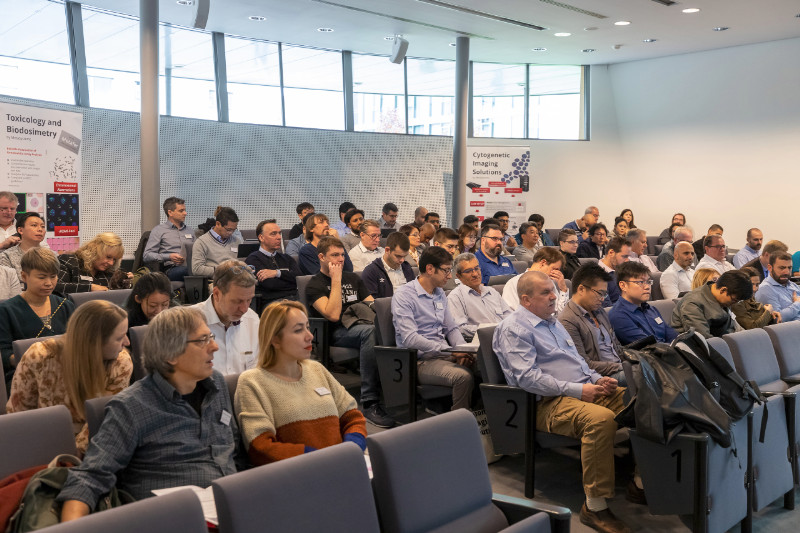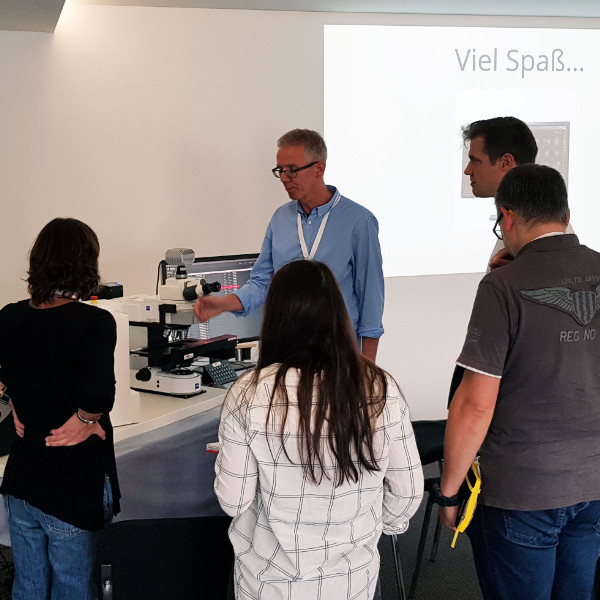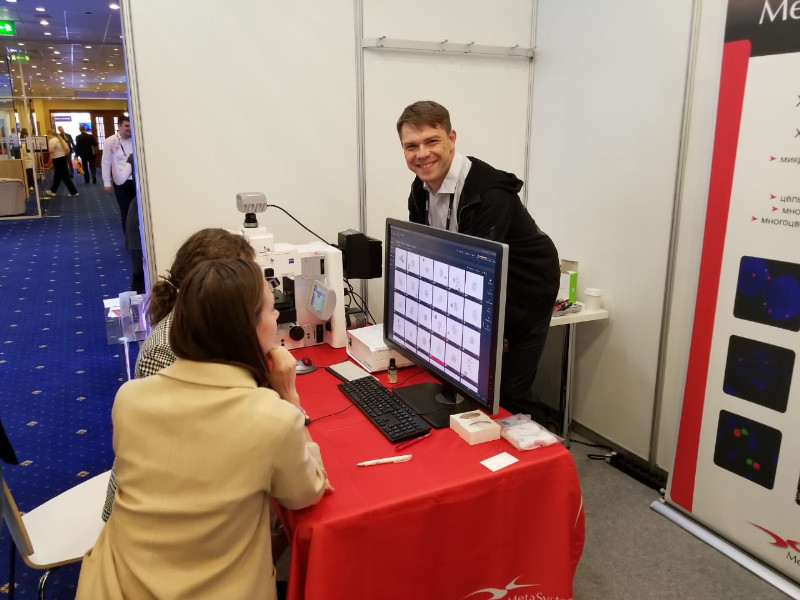About 100 guests from 36 countries met on the XVIII. MetaSystems Distributor Meeting (DM) in November to exchange experiences and to get to know new trends and developments at MetaSystems.

Our internet site may contain information that is not approved in all countries or regions. To ensure accuracy of content, please select your country/region of residence. Choose International if your country is not listed.
This information will be saved using cookies. To find out more about cookies, read our Privacy Policy.
Please select your country of residence. Choose International if your country is not listed.
Our internet site may contain information that is not approved in all countries or regions. To ensure accuracy of content, it is required that you select the site which is appropriate for your country of residence.
Based on your previous selection, you have been forwarded to the website for International.
MetaSystems Probes has already certified a large part of its portfolio, according to IVDR. For organizational reasons, we currently provide only the IVDD product.
Discover all IVDR-certified products
XL PDGFRA BA consists of a green-labeled probe hybridizing proximal to the PDGFRA gene region at 4q12 and an orange-labeled probe hybridizing distal to the PDGFRA gene region at 4q12.
Probe maps are created in accordance with the intended purpose of the product. Solid colored bars do not necessarily indicate that the probe fully covers the indicated genomic region. Therefore, caution is advised when interpreting results generated through off-label use. Probe map details based on UCSC Genome Browser GRCh37/hg19. Map components not to scale. Further information is available on request.
The category ´myeloid/lymphoid neoplasms with eosinophilia and rearrangement of PDGFRA, PDGFRB or FGFR1, or with PCM1/JAK2´ of the revised 4th edition of the WHO classification defines three particular groups with rearrangements in PDGFRA, PDGFRB or FGFR1 and a provisional entity with PCM1/JAK2 rearrangement. The clinical manifestations within this category are numerous and heterogeneous and include myeloproliferative neoplasms, myelodysplastic syndromes as well as de novo or secondary mixed phenotype acute leukemia and lymphomas. Neoplasms with eosinophilia are associated with dysregulated tyrosine kinases, usually as a result of gene fusions. It is of great importance to identify the genes involved because aberrant tyrosine kinases react to tyrosine kinase inhibitors with varying sensitivity. Patients with PDGFRA and PDGFRB rearrangements are responsive to imatinib whereas FGFR1-related diseases are non-responsive. PDGFRA rearrangements are usually associated with chronic eosinophilic leukemia (CEL).
The most frequent PDGFRA-related aberration is the interstitial deletion of the CHIC2 gene with breakpoints in the FIP1L1 and PDGFRA genes. The deletion of a fragment of about 800kb results in the FIP1L1-PDGFRA fusion gene, a constitutively activated tyrosine kinase transforming hematopoietic cells.
In FISH assays, the detection of CHIC2 deletion at 4q12 is a surrogate for the direct detection of the FIP1L1-PDGFRA fusion gene. Translocations with other partner genes, resulting in aberrant tyrosine kinase activity, are known. Involvement of PDGFRA can be detected by FISH break apart strategies.

XL PDGFRA BA hybridized to bone marrow cells, one aberrant cell is shown. The expected normal signal pattern of XL PDGFRA BA is two green-orange colocalization/fusion signals representing the two normal PDGFRA loci. Cells with breakaparts typically have one normal green-orange colocalization/fusion signal plus one orange and one green signal clearly separate from one another.

Normal Cell:
Two green-orange colocalization/fusion signals (2GO).

Aberrant Cell (typical results):
One green-orange colocalization/fusion signal (1GO), one separate green (1G) and orange (1O) signal each resulting from a chromosome break in the relevant locus.

Aberrant Cell (typical results):
One green-orange (1GO) colocalization/fusion signal and one orange (1O) signal resulting from the loss of one green signal.
Certificate of Analysis (CoA)
or go to CoA DatabaseNeon, the outstanding MetaSystems case and image management system, offers many tools and helpful gadgets to streamline routine workflows, for example in cytogenetics labs. The second MetaSystems User Day, addressed to MetaSystems clients from Germany, Austria, and Switzerland, provided in different workshops knowledge helping to unleash the full power of the system.

The Congress 'Genetics of XXI Century' in Moscow, Russia (May 2019) has been one of the most important events for the professional international community of geneticists. Our partner company in Russia OOO MetaSystems considered it a good occasion to present the new camera CoolCube 4 connected to a state-of-the-art Neon system to the public.
